CMI-IISD Certificate Courses
Carbon Minus India (CMI)
Carbon Management School (CMS)
Carbon Minus India (CMI)
Carbon Management School (CMS)
National Certificate Course Program (NCCP) on
Carbon Management: GHG Accounting, Carbon
Footprinting, Net Zero and Carbon Neutral Certification,
Carbon Markets & Trading
National Certificate Course Program (NCCP) on
Footprinting, Net Zero and Carbon Neutral Certification,
Carbon Markets & Trading
3rd - 4th December, 2025
IISD-CMI Certificate Courses
Indian Institute of Sustainable Development (IISD)
School of Business Sustainability (SBS)
National Certificate Course Program (NCCP) on
ESG, BRSR and Sustainability Reporting
19th - 20th June, 2025
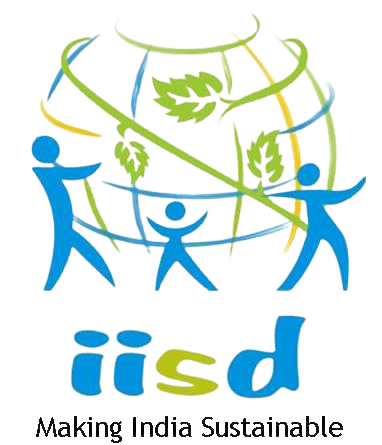
INDIAN INSTITUTE OF SUSTAINABLE DEVELOPMENT (IISD)
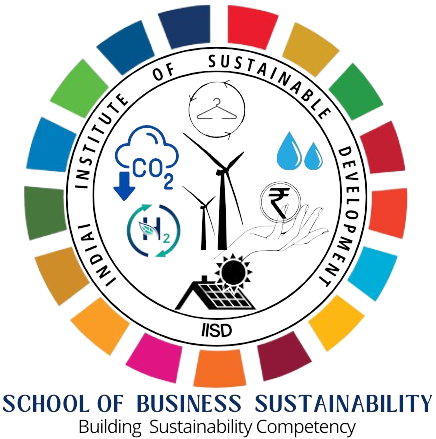
SCHOOL OF BUSINESS SUSTAINABILITY (SBS)
Established on July 3rd 2007, as a Knowledge Dissemination Initiative of IISD, the School of Business Sustainability (SBS) has been at the Forefront of Sustainability Education. With a Mission to Build Sustainability Competence, SBS-IISD Offers Transformative Courses and Certification Programs, those are in great demand by Interested Professionals & Corporate World. With 2000+ International Participants; SBS is the unique and historic Drive of IISD and Probably the Only Institute in India; spreading the Light of Knowledge and Building Professional Capacity in the Sustainability Management Domain. SBS is Well Known for its Annual Program on ESG, BRSR and Sustainability Reporting, which attracts Professionals from Various Sectors, including Economists, Financial Professionals, Technology Leaders, Consultants, and Senior Business Executives. At SBS, we are Committed to Equipping Professionals with the Tools they need to Navigate the Complexities and to lead their Organizations towards a more Sustainable Future.
National Certificate Course Program (NCCP)
ESG, BRSR and Sustainability Reporting
19th - 20th June, 2025
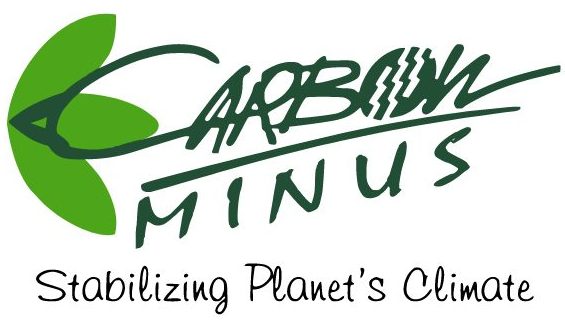
Carbon Minus India (CMI), New Delhi

CARBON MANAGEMENT SCHOOL (CMS)
The Carbon Management School (CMS) is the first of its Kind, attempt of Carbon Minus India (CMI), along with IISD and its, School of Business Sustainability (SBS), to introduce most Popular and Demanding Green Course Curriculum, in the Management (MBA) Stream, including the Coverage of Other Disciplines in Developmental Sciences; that endeavours to Disseminate the Quintessence of Knowledge and Expertise in the Realm of Carbon Management. A Plethora of Meticulously Curated Online and Offline Courses, at this Platform serves as a Beacon, attracting Consultants, Entrepreneurs, Startups, Research Scholars, Corporate Managers, and Individuals of Diverse Backgrounds. These CMS-SBS Flagship Courses, on Carbon Management, Delves Deep into the Intricacies of Greenhouse Gas Mapping, Carbon Footprinting, Carbon Markets, Trading and Climate Risk Management. With a Legacy of Certifying over 2000+ Proficient Carbon Management Professionals in the Globe, in the past 16 years, the School is Celebrated for its Profound Reservoir of Knowledge and Pragmatic Insights. and building Professional Competancies, with an Objective Of Decarbonizing the Economy.
National Certificate Course Program (NCCP)
Carbon Management: GHG Accounting, Carbon
Footprinting, Net Zero and Carbon Neutral Certification, Carbon Markets & Trading
3rd - 4th December, 2025
Registration Fees
Non Member Price: INR 35,000 + 18% GST = INR 41,300/-
IISD- CMI Member*: INR 32,000 + 18% GST = INR 37,760/-
* Members have to Share Membership Certificate or Membership No. to avail the Discount
Otherwise, If you are not an Individual Life Member, but interested, You can apply now, by Downloading the Documents Below.
Venue
India International Centre (IIC) Annexe
Lecture Room #1, Near The World Bank India Country Office,
90 Lodhi Estate, Side of WWF India and Chinmay Mission and Other Side by Lodhi Garden,
40, Max Mueller Marg, Lodhi Estate, New Delhi-110003, India.

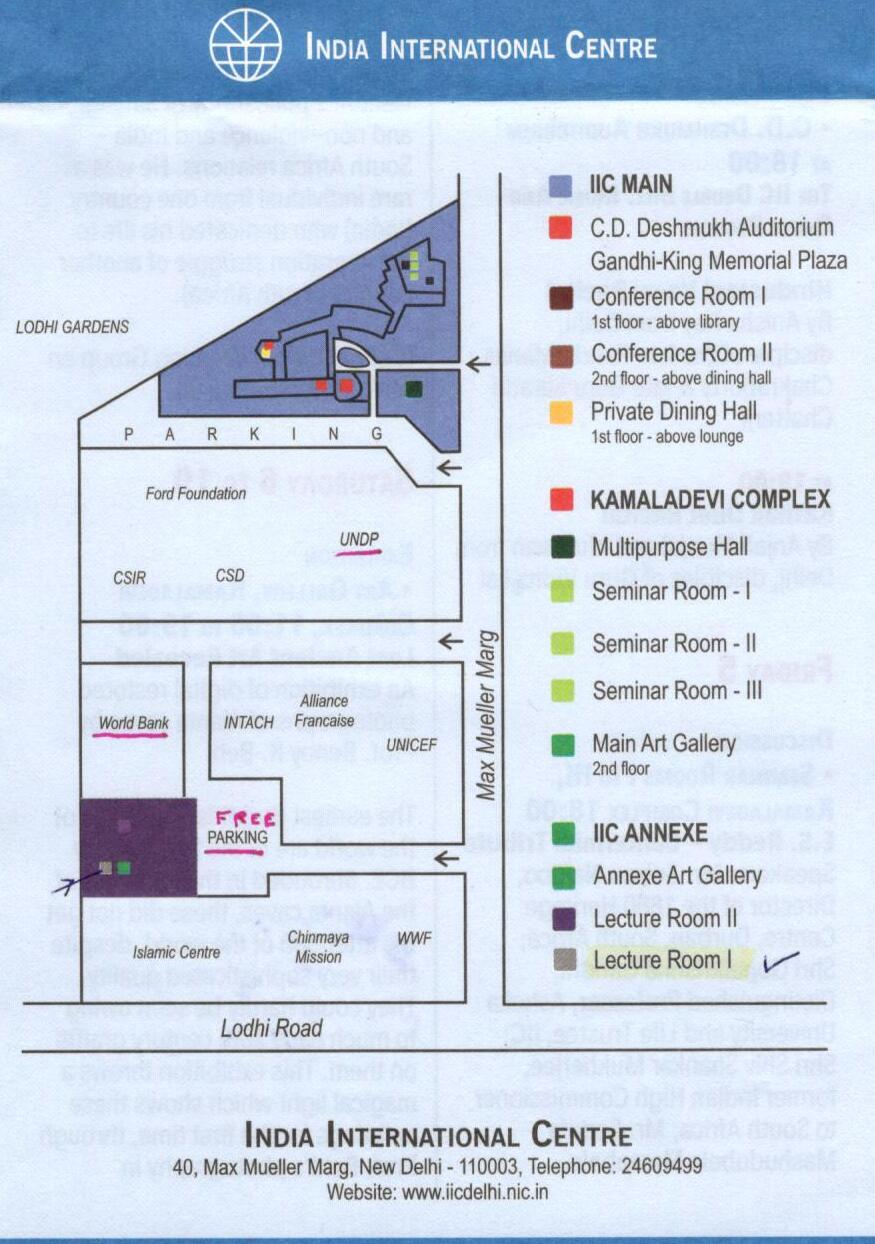
Our Few Past Courses

AECTP 13
Shri Anil K. Jain, IAS. Advisor, NITI Aayog who is now Secretary Coal (Govt. of India) was the Chief Guest; where 54 eminent trainees, underwent the Advanced Executive Training Program on GHG Accounting, Carbon Foot printing & Carbon Trading and Management with Carbon Neutral & Carbon Minus Certification.

AECTP 12
MS Meenakshi Lekhi, than MP New Delhi, was the Chief Guest - who is now MOS, External Affairs & Culture; where 51 eminent trainees, underwent the Advanced Executive Training Program on GHG Accounting, Carbon Foot printing & Carbon Trading and Management with Carbon Neutral & Carbon Minus Certification.

AECTP 11
Dr. Ajay Mathur, DG TERI was the Chief Guest- who is now the DG of International Solar Alliance (ISA), where 51 eminent trainees, underwent the Advanced Executive Training Program on GHG Accounting, Carbon Foot printing & Carbon Trading and Management with Carbon Neutral & Carbon Minus Certification.
Some of Our Supporters and Partners

Feedback of Distinguished Personality/Institute

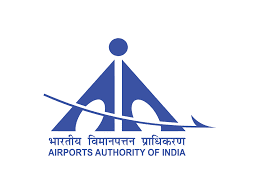





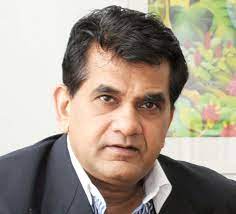



Stakeholders' Reviews
EXCELLENTTrustindex verifies that the original source of the review is Google. The office of the Director General here is a very warm place to work at. I got the opportunity to work directly under Dr Srikanta K Panigrahi ,who is a great mentor. Though work timings can stretch, if you are really into environment and sustainability, time will pass really quick and you’ll enjoy working here . The place is at walkable distance from east Vinod nagar-Mayur Vihar phase2 metro station and conveyance is also easily availablePosted onTrustindex verifies that the original source of the review is Google. Indian Institute of Sustainable Development (IISD) is recognized as a Global Think Tank and a Leading Scientific Research Organization headquartered in New Delhi. IISD's Contributions to promoting Sustainability and Climate Action and its Commitment to the well-being of the Nation and the Planet is commendable. It was a great honour to work as a Research Associate in IISD as it is completed 15 years of dedicated work towards Social, Environmental, and Economic Sustainability !. IISD generally focus areas on Climate Change Adaptation, Mitigation, and Carbon Finance; which are crucial for achieving India's Sustainable Development Goals (SDGs) and decarbonizing Indian Economy, while fulfilling the aspirations of the Indian Population at large. Wishing IISD, continued success in its Mission to create a more Sustainable and Climate-Resilient Future. May the next 15 years be even more Impactful and Fruitful. ___________________________________________________________________Rachna, IIT KHARAGPURPosted onTrustindex verifies that the original source of the review is Google. had the privilege of attending the Indian Institute of Sustainable Development (IISD) as a Research Intern , and I must share it was a transformative experience. This institute stands as a true champion for sustainable development, and it's commitment to creating a better future for the Planet is truly commendable. The IISD offers a diverse range of programs and initiatives that focus on practical solutions to environmental challenges. From renewable energy projects to waste management strategies, they are at the forefront of innovative research and implementation. The faculty members are experts in their respective fields and bring a wealth of knowledge to the Research Institute. I am highly impressed to witness Team -IISD's dedication to create a better world to live in while implementing UNSDGs throughout the length and breadth of the Country.Posted onTrustindex verifies that the original source of the review is Google. The Indian Institute of Sustainable Development (IISD) in New Delhi is an unique and exceptional Institute of it's kind; committed to sustainable development along with social and environmental justice. IISD's high-quality scientific research promotes a balance between economic growth and environmental protection, while empowering weaker sections of society. IISD is a valuable asset to India and the world, making a positive impact on creating a sustainable and equitable future for all of us. Highly Recommended IndeedPosted onTrustindex verifies that the original source of the review is Google. IISD is a wonderful Place to work, as the Staff and my Professional Colleagues are very supportive and Of having of great helping attitude, which promotes positivity and offer a nice working atmosphere, all together.Posted onTrustindex verifies that the original source of the review is Google. Indian Institute of Sustainable Development (IISD) is renowned for its Grassroots Community Research, Capacity Building, and Research Projects in Rural Development, Water Resources, Renewable Energy, Sustainable Agriculture, and Climate Change. In pursuit of the goal of a better future for both people and the planet, they are making excellent progress. In addition, IISD is actively participating in 15 national campaigns to encourage individuals to join and contribute to the implementation of the UN Sustainable Development Goals in India.Posted onTrustindex verifies that the original source of the review is Google. Indian Institute of Sustainable Development IISD is a Scientific Research Institute working towards attaining sustainability for Our planet since 2007. The Institute is working with higher level of professionalism and encourage young minds to learn, practice and take proactive actions on Environmental Challenges, such as Climate change and Pollution Management, including 51 Other Focus Areas. I feel really proud to be a part of this Esteemed Institute.Posted onTrustindex verifies that the original source of the review is Google. IISD has taken a great initiative on climate, resources and economy. They are doing very well towards the vision of "a world where people and planet thrive"Posted onTrustindex verifies that the original source of the review is Google. IISD is known for research projects related to grassroots community research, capacity building, rural development, water resources, renewable energy, sustainable agriculture and climate change.Posted onTrustindex verifies that the original source of the review is Google. This give us an immense learning about sustainability. With that its also provide us the platform to execute your ideas and create a unique bench mark towards sustainability.
National Certificate Course Program (NCCP)
NCCP Director
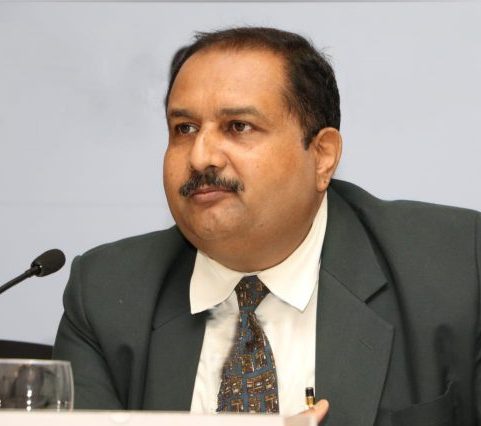
Dr. Srikanta K. Panigrahi
Hon'ble Director General and Distinguished Research Fellow, IISD-CMI

Dr. Srikanta K. Panigrahi
Hon'ble Director General and Distinguished Research Fellow, IISD-CMI
Dr Panigrahi has earned his formal Degree in Civil Engineering, then received Master Degrees, Environmental City Planning, Management & Business Administration and Doctorate in Public Policy, Specializing Science Policy, from Credible Universities Of India and abroad, including Technical University Of Dresden (TUD), Germany, IIT Delhi, School of Planning & Architecture and JNU at New Delhi; followed by a Post-Doctoral Research Fellowship from Massachusetts Institute Of Technology (MIT), Cambridge MA, USA. He was also an UNEP/UNESCO Fellow, where he delivered Guest Lectures in five prestigious Universities of Europe, at Hamburg, Dresden, Prag, Vienna and Zurich, and Other 29 Universities (Other than India) of the Globe later.
VISITING FACULTIES
are invited as per their availability
- Dr Bhaskar Chatterjee- Father of Indian CSR and BRSR & Sustainability Reporting Leadership Group, IISD
- Shri Santhosh Jayaram, Global Sustainability Head, HCL Technologies
- Shri Shivananda Shetty, Global Lead Partner (ESG) & Director, KPMG, India
- Ms. Surabhi Gupta, GM (BRSR), SEBI, Mumbai
- Shri Nitesh Mehrotra, Partner, Sustainability Reporting, EY, Mumbai
- Ms. Shuchi Malhotra, Director, Deloitte Consulting, South Asia
- Shri Joseph Martin Chazhoor Francis, Sr Director, Market Leaders, ESG, PWC
- Shri Sandeep Mohanty, Partner (ESG & Sustainability Reporting), PWC
- Dr. Charulata Londhe, Associate Professor, IILM University
- Dr. Garima Dadhich, Associate Professor, IICA
- Dr. Ravi Raj Atrey, Director, IICA
- Prof. Vasanthi Srinivasan, IIM Bangalore
- Prof. Sanjay Dhir, Department Of Management Studies (DMS), IIT Delhi
- Ms. Meher Soni, KPMG ESG & Sustainability
- Shri Parul Soni, Founder & Global Managing Partner, Thinkthrough Consulting
- Dr. Kshemendra K Upadhyay, Prof & Chair, Centre for Sustainability & Corporate Social Responsibility (CSR), BIMTECH
- Ms. Shivani Mudgal Datta, Principal Advisor Sustainability, Rio Tinto
- Shri Vijay Sethi, Board Member BosonQ Psi (BQP) and Chairman MentorKart
- Shri Nitin Gupta, Vice President, Sustainability, Capgemini
- Dr. Remant K. Tiwari, Dy Director, Deloitte Touche Tohmatsu Ltd
- Shri Ravi Ruarel, ESG, BRSR, Director Consulting EY Mumbai
- Shri Vinod Jha, Banking/ Risk Finance Advisor, IISD-CMI, Mumbai
- Dr. Niraj Seth, Former Partner, CSR & Sustainability, EY India
- Shri Nakul Zaveri, Managing Partner, Relativity Investment Mgt, Mumbai
- Dr. M.A. Khalid, AIGWES, Noida
- Dr. Dipankar Ghosh, Partner, BAS: Sustainability & ESG, BDO
- Ms. Gayatri Subramaniam, Former Head (CSR), IICA
- Dr. Vidya Tickoo, ESG, System & Process Expert
VISITING FACULTIES
are invited as per their availability
Carbon Management
- Dr. Ashok Kumar, Deputy Director General, BEE, MoP
- Shri Chaitanya Kalia, Partner and Leader, Climate Change, EY India
- Shri Shivananda Shetty, Partner & Head, KPMG
- Dr Gargi Ghorpade , Executive Director, Climate & Energy, Advisory Services, PWC, Mumbai
- Ms. Shuchi Malhotra, Director, Deloitte Consulting, South Asia
- Shri Sambitosh Mohapatra, Partner (Climate Change), PWC
- CA/CS Mahindra K. Tiwari, Director (Fin & Int & Coop), IISD-CMI
- Shri Satish K. Gupta, Distinguished Research Fellow, CMI-IISD
- Shri Indranil Chatterjee, Head, International Carbon Exchange, IEX
- Shri Vinod Jha, Banking / Risk Finance Advisor, IISD-CMI
- Dr. V. Shunmugam, Former Chief Economist, MCX
- Shri Gaurav Srivastava, Global Carbon Council, GCC, India
- Shri Nitin Kapoor, Chief Executive Officer (CEO), Infinite Solutions
- Shri Praveen Sharma, Dy Director, Deloitte Touche Tohmatsu Ltd
- Shri Abhishek Rajdeep, Visiting Fellow, IISD-CMI & CEO, Everain Global
- Dr. Remant K. Tiwari, Dy Director, Deloitte Touche Tohmatsu Ltd.
- Dr. Murali Kanakasabai, CCX, Chicago
- Ms. Mallika Paulraj, CCM, London
- Dr. Lokesh Chandra Dubey, Visiting Fellow, CMI-IISD & Gold Standard
- Shri Kaviraj Singh, Carbon Offset Verifier, Climate Tech
- Ms. Tanima Singh, KPMG, Climate Change, New Delhi
- Shri Shashikant Verma, GFCL
- Shri Nakul Zaveri, Managing Partner, Relativity Investment Management
- Dr. Roop Salotra, Former Advisor, SRF
- Dr. Ancha Srinivasan, ADB, Philippines
- Shri Vinoy Deodhar, Sr Renewable Energy & Climate Finance Professional
- Dr. Rahul Shankhe, President & Co-Founder, Sense Hawk & Ex-McKinsey
Course Pedagogy
Course Syllabus
Day 1
Introduction to ESG, BRSR, Sustainability Reporting (SR) / Integrated Reporting (IR)
- ESG Framework in line with Company’s Strategic Growth Policy
- Steps to Develop an ESG Strategy
- Value Chain Sustainability for Suppliers & Vendors in each Product Lifecycle
- ESG for Sustainability Framework for Business & Industries
- ESG Integration in Risk Management, Sustainability Reporting, Due Diligence, Sustainable Finance, Corporate Governance, Government Investigations & Enforcement, Dispute Resolution, Environmental, Social, Governance (ESG)
- ESG in Board Room: Employee Welfare, Product & Process Safety, Cyber Security, Carbon Footprint.
- ESG in Carbon Compliance, Emission Reduction Measures, Energy Efficiency & Renewable Energy Initiatives and Carbon Neutral / Net Zero Certification
- ESG Roadmap: A Map starting from the Current Baseline existing Plans, Programs and Policy to Benchmarking Goals and Direction
- ESG Standards: GRI, UN SDGs, DJSI, TCFD, SASB, CDP, BRSR, ESG Reporting, including ESG Disclosure
- ESG Metrics: GHGs Accounting, Waste Management, Sourcing of Raw Materials, Environmental Impact, Employee Safety, Diversity & Inclusion, and Wages & Taxes Paid, Anti Bribery.
- ESG Creating Value by Reducing Energy Costs, Higher Employer Engagement, Sustainable Supply Chains, Higher Valuations and Compliances with Regulations
- ESG Rating: MSCI and Ecovadis Method of Company Specific ESG Score Calculation
- EU CSRD Corporate Sustainability Reporting Directive
Day 2
Securities Exchange Board of India (SEBI)’s Business Responsibility and Sustainability Reporting (BRSR) Compliance
- BRSR Timeline, Framework and Types of Disclosure
- SEBI mandated BRSR Indicators and
- Legal Compliance Requirements
- Integrated Reporting – Case Studies
Sustainability in Finance, Insurance & Banking Sector
- UNEP Finance Initiative (UNEP-FI)
- UN Principles for Responsible Banking (2019),
- Principles for Sustainable Insurance (2012),
- Principles for Responsible Investment (2006),
- Global Ethical Finance Initiative (GEFI)
- Climate Risk Mapping & Mitigation
- Risk Strategies for Business & Industry
- Business Ethics & Values and Green Washing
Corporate Social Responsibility (CSR) Designing & Implementing
- CSR Impacts
- Measuring impacts
- Corporate Governance
- Reporting Frameworks
- CSR vs Business Sustainability Interface
About Carbon and Other Credits and Trading
- Carbon Credit Trading Scheme (CCTS)
- Green Credits
- Individual Carbon Trading
- Water Credit Trading
- Plastic Credit Trading
Course Syllabus
Day 1
- Introduction, International Architecture in Climate Change Science, Adaptation and Mitigation
- MoEF&CC Notifications on Green Credit Program Implementation Rules, 2023
- National Designated Authority for the Implementation of the Paris Agreement (NDAIAPA) Notification Of MoEF&CC
- Understanding Emissions: Scope 1, 2, 3 & GHG Accounting / Assessment
- Calculating Emission Reductions and Carbon Foot-printing
- Practicing Exercises on GHG Emission Assessment and Carbon Foot-printing
- Carbon Neutral and Net-Zero Certification
- Carbon Project Lifecycle, Including Host Country Approval Process, Validation and Verification
- India’s Preparedness in generating it’s Intra Carbon Credits for addressing India’s Global Carbon Tax Obligations
- EU’s Carbon Border Adjustment Mechanism (CBAM) and its Implications to Indian Industries
- Ministry of Power (MoP)’s Indian Carbon Market (ICM) and Carbon Credit Trading Scheme 2023 for Establishing a Carbon Market and Trading in India
Day 2
- Climate Risk Management for Banking and Insurance
Professionals / Institutes in New & On Going Project Appraisals
- Climate Risk Identification, Mapping, followed by Risk
Assessment
- Due Diligence in Banking and Insurance Sector for Financial & Non-Banking Financial Institutes (NBFI)s
- Climate & Disaster Risk Due Diligence for New Investments,
Equity & Debt in Project Appraisals
- Carbon Markets: Introduction, Basic Concepts, Market Players and Components of a Carbon Market
- Global Carbon Market Developments vs Article 6 of Paris Agreement
- Voluntary Carbon Trading Platforms and Methods: VCS, VEERA, Gold Standard and Global Carbon Council (GCC)
- General Offsetting Process, with a Special Reference to Carbon Credits Project Offsets
- Global Carbon Trading & its Process in Carbon Exchanges
- Plantation / Sink / Forestry / LULUCF Sector Carbon Project Cycle for Sequestration Assessment, in Compliance & Voluntary Markets and Trading Systems
- International Renewable Energy Certificate (I-REC)
- Renewable Energy Certificates (REC) & Electricity Trading in India and International Carbon Exchange, Indian Energy Exchange Ltd (IEX)’s Journey
- Individual Carbon Trading
- Concept of Plastic Credits and Trading Mechanism
IMPORTANT INFORMATION
- The medium of the Certificate Course is in English.
- Registration will be strictly on a First-come-first basis, Subject to the Complete Payment of the Registration Fees, with GST. In Case of Non-payment of Registration Fees, a Temporary Registration No. may be issued Maximum for 2 Days, with the Course Director’s approval, which could be withdrawn at any Point.
- Lodging, Boarding and Local Transport are the Candidate’s Responsibility; However the Candidate is expected to inform IISD-CMI; about their Temporary Local Address.
- The Course Fee does not include Expenses such as Dinner, Laundry, Telephone Bills, Boarding Expenses, if any etc.
- Some Faculty Members Constitute the Core Faculty Team, whereas Others are Visiting Faculties, as Shared here; However, The Visiting Faculties are Subject to their Availability Only.
- On the Training Day: Lunch + 2 times Tea / Coffee will be served.
- The Total No of Applicants / Day for this Certificate Program Should not exceed more than 50, in any case.
PAYMENT GATEWAY
Payment can be made through the following 3 Ways:
- In Case of Self Nomination, Through UPI, by Scanning the QR Code; Payment can be made by through any of your the PhonePe, Google Pay, Paytm, BharatPe, Bhim, etc. Platforms and then Share the Screenshot at Your Google Form and Speak to the Course Coordinator, if required, for getting your Registration Confirmed.
- In Case of Corporate Nominations, the Names, along with Mobile No, Email and Authorization Letter, and Name of the Contact Person for further Communication, along with Course Registration Fee. Payments can be made either through Bank Transfer or any Other UPI Gateways and Sharing the Screenshot at Google Form for the Completion of the Registration Process, so that the Seats Can be reserved.
- Those, who are willing to make their Payments through Demand Draft (DD) or At Par Account Payee Cheques, they may Send the Same through “Speed Posts” at the Address Below :
IISD-CMI Certificate Course Coordinator
Director General’s Secretariat
301-A, GF, Pocket-C, Mayur Vihar Phase-II, New Delhi-110091

BANK DETAILS
- Name: Indian Institute of Sustainable Development
- Name of the Bank : State Bank of India
- Branch : West Vinod Nagar
- Account Number : 62175298062
- IFSE Code : SBIN 0021310
FOR QUERIES:
Ms. Meetu
Certificate Course Program Coordinator
sustainableinstitute@gmail.com
+91 7011510990, +91-11-35621562
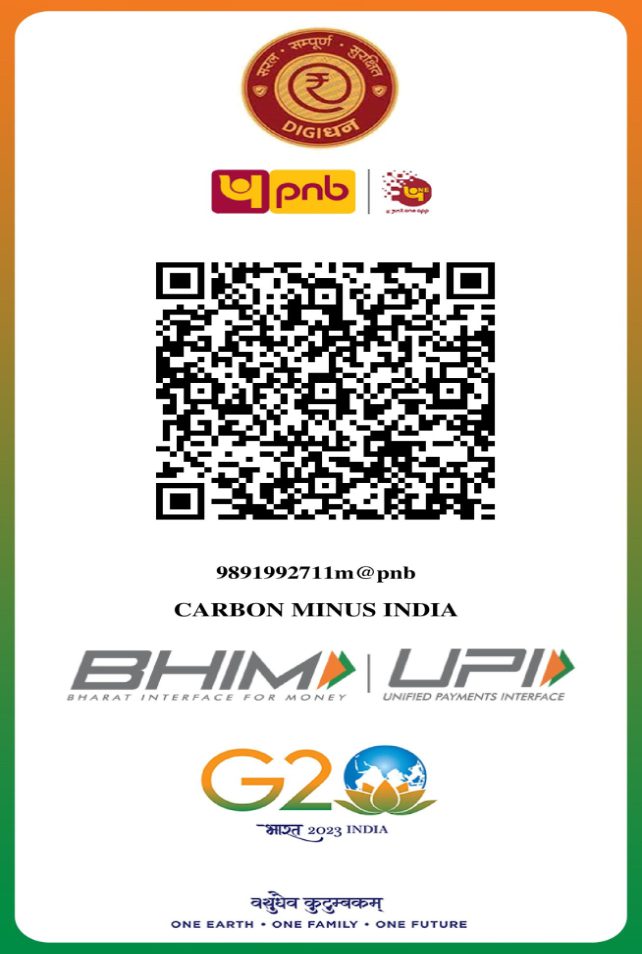
BANK DETAILS
- Name: Carbon Minus India
- Name of the Bank: Punjab National Bank
- Branch: Mayur Vihar Phase 2
- Account Number: 2572000101863632
- IFSC Code: PUNB0440800
FOR QUERIES:
Ms. Meetu
Certificate Course Program Coordinator
sustainableinstitute@gmail.com
+91 7011510990, +91-11-35621562
Assessments & Certifications
Deserving Candidates, who will complete the course successfully, with higher level of Professional Engagements and Participation, will be awarded the Course Certificate, In fact, which has an International Recognition.
PLEASE NOTE: An Assessment is conducted to appraise the participant’s basic understanding, with clarity in fundamentals and take away from the Course Delivery; based on Questions with Multiple Choices. The assessment is crucial for obtaining the Certificate of Merit.
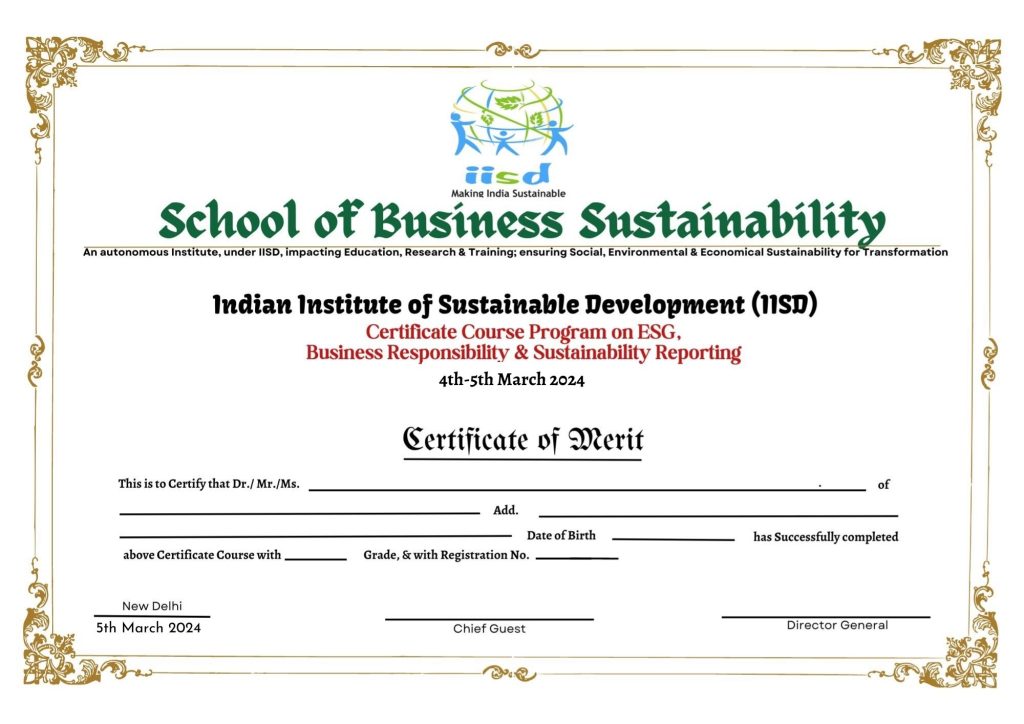
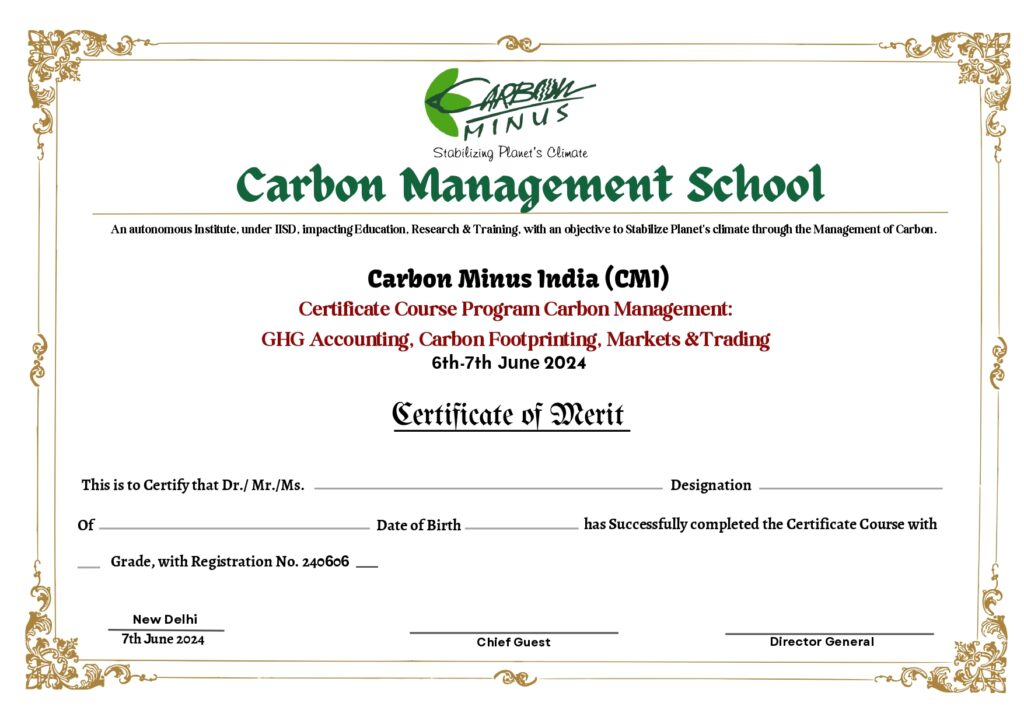

Environmental, Social, and Corporate Governance (ESG)
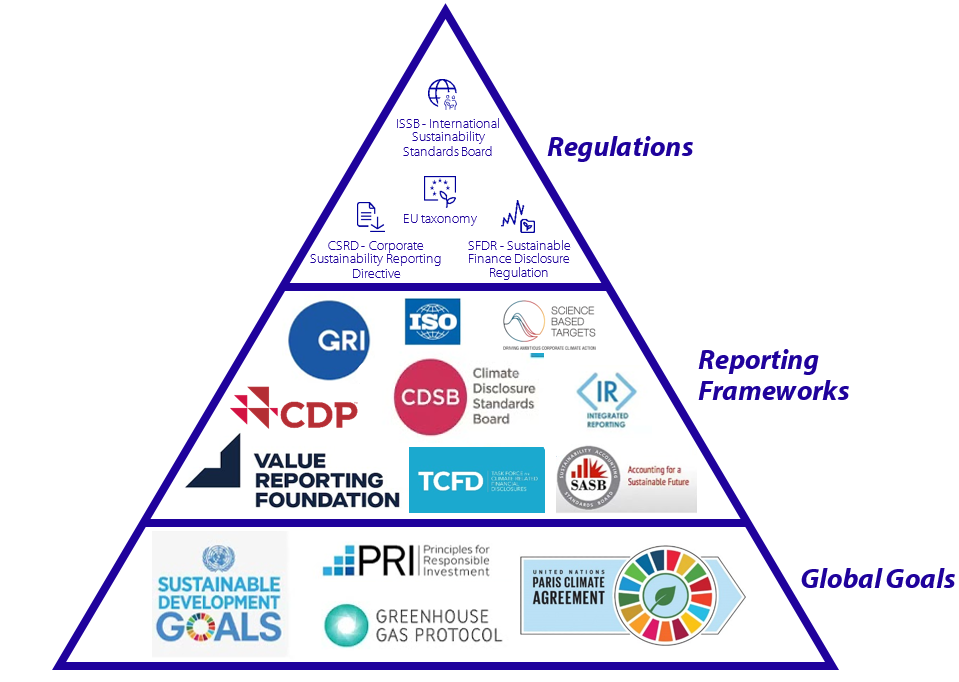
ESG Programs to be Data Driven
The Significance of an ESG Program is increasingly depending on data availability and adopting right Analytics; which helps to arrive at followings:
- Measurable Impact
- Transparency and Accountability
- Informed Decision-Making
- Risk Management
- Investor and Stakeholder Expectations
- Regulatory Compliance
- Competitive Advantage
- Long-Term Sustainability
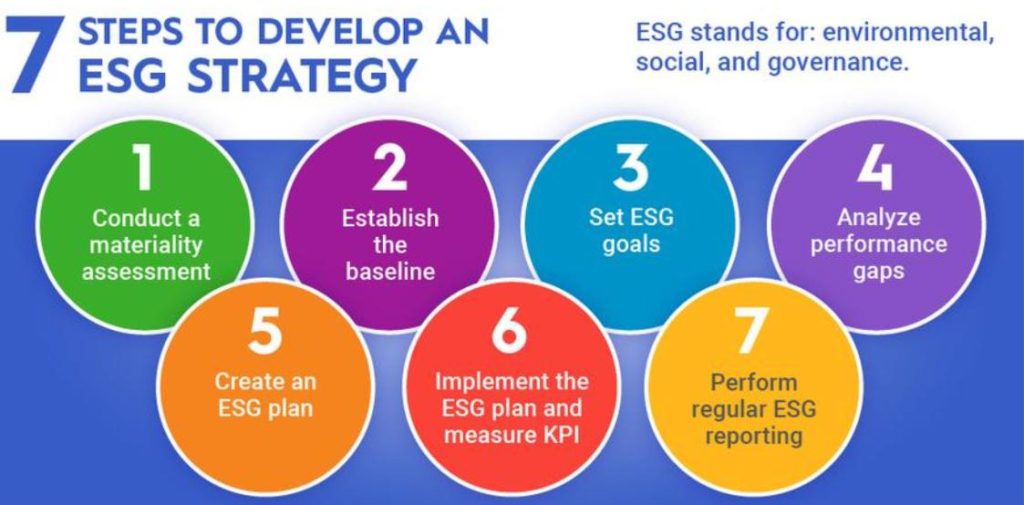
Why is Certified ESG Rating Important?
ESG Rating Analysis, is becoming increasingly popular, and also one of the most pronounced industry trends in recent times that has the potential to impact the financial and non-financial sectors. ESG Rating analysis is indispensable for any business or industry because it also looks at the non-financial aspects of a company to make key decisions relating to Investment, by Investors, Regulators, Companies, Consumer Bodies, Research Entities and more.
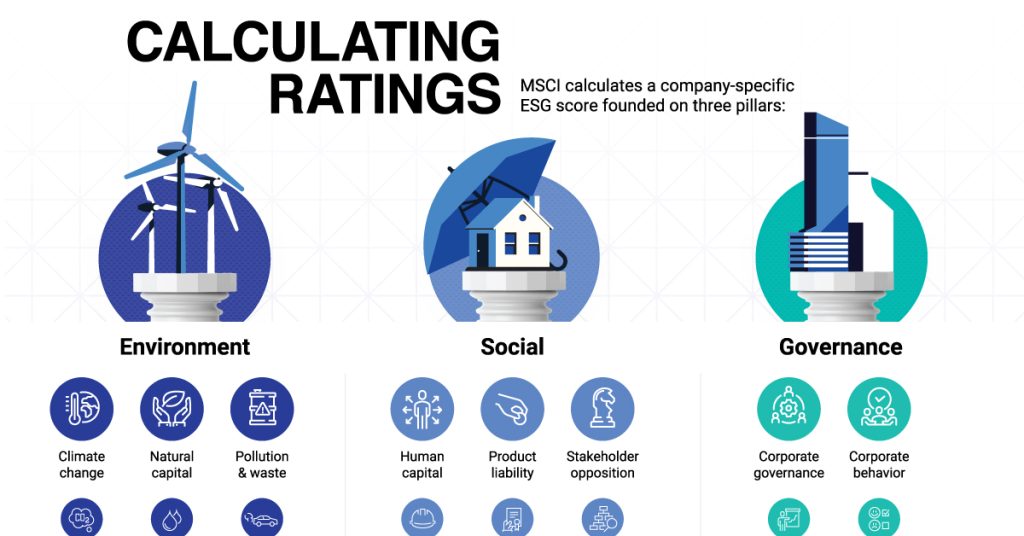
SDGs vs ESG Goals
What is BRSR?
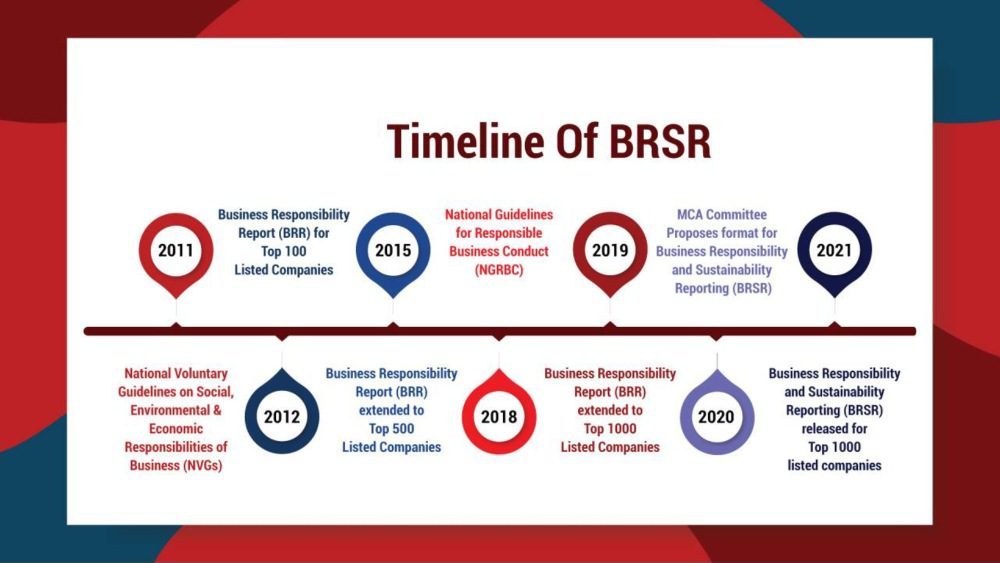
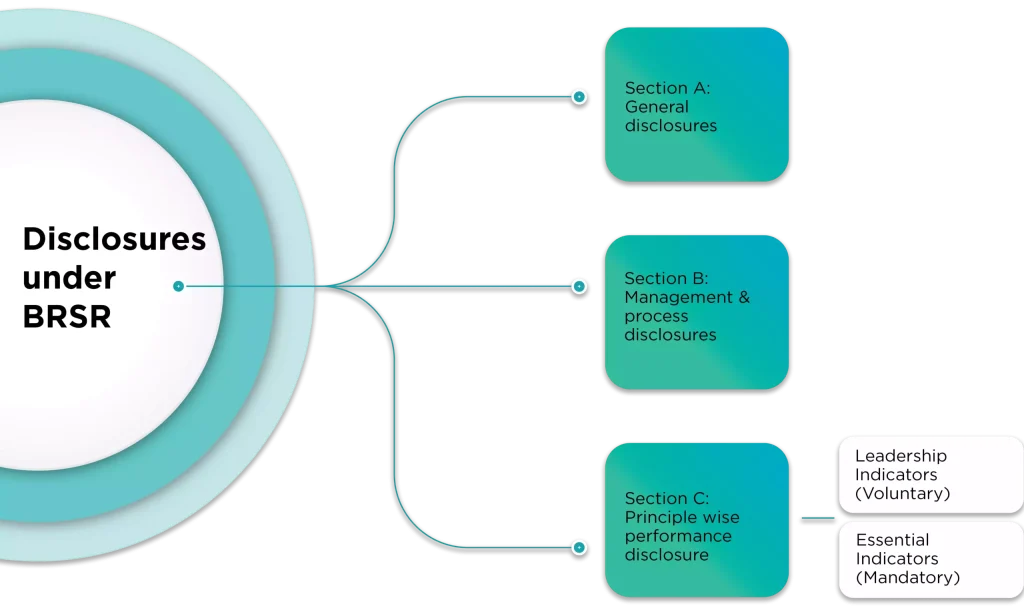
What is Carbon Accounting?
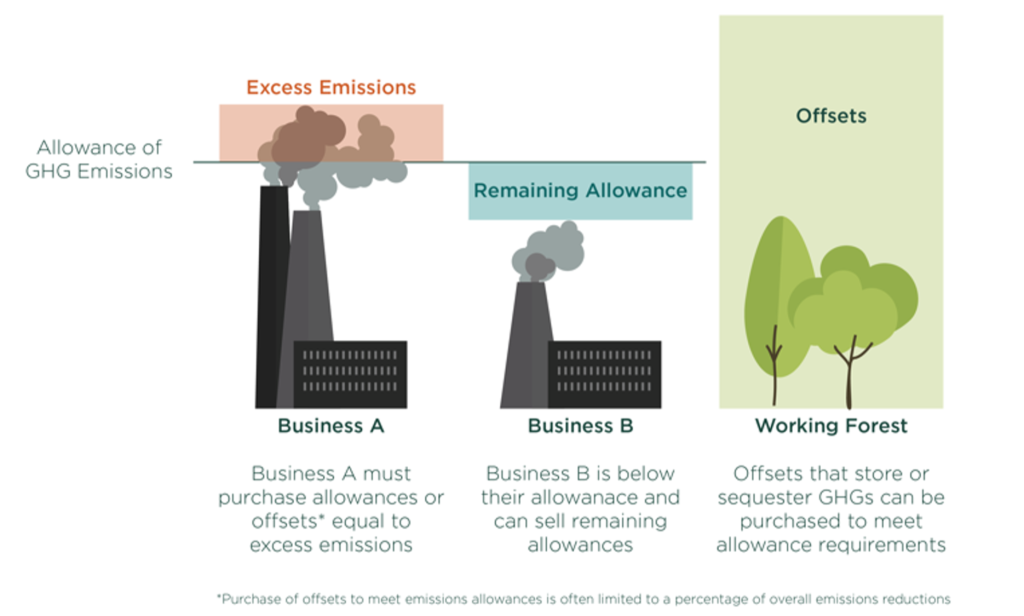

What is a Carbon footprint?
What is Carbon Trading?
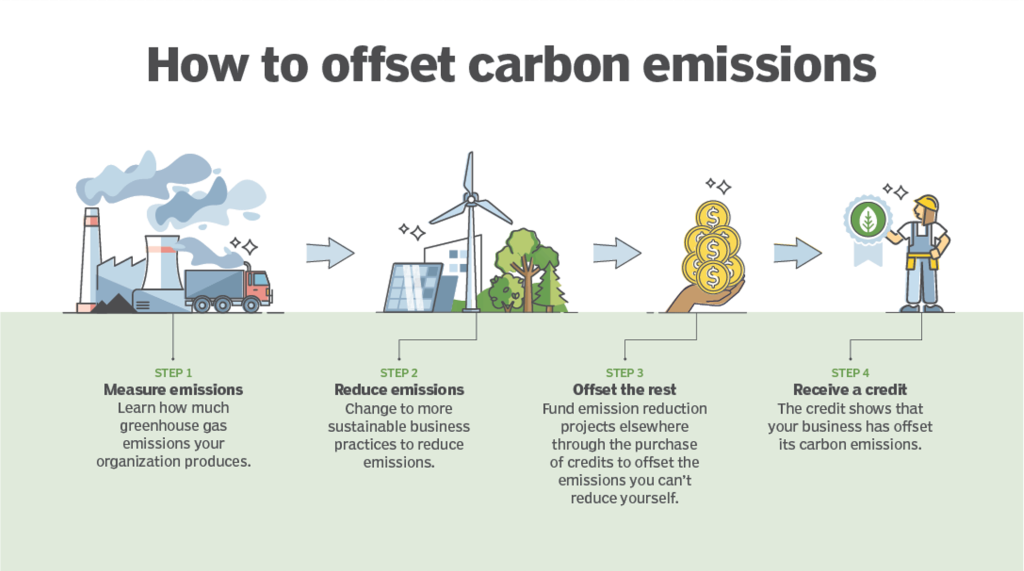

What is I-REC?
A REC (Renewable Energy Certificate) is a type of Energy Attribute Certificate (EAC) that represents the environmental attributes of the generation of a one-megawatt hour (MWh) of energy produced by renewable sources.
Using EACs, end-users around the world can make reliable claims about their energy usage, such as: “my factory runs on 100% renewable energy”, “our products are made with 100% wind energy”, and “our global electricity usage causes zero end-of-pipe emissions.” Without EACs, it would be impossible to make these reliable claims because electricity is not a tangible product that can be boxed and sent from the producer to the consumer. Instead, a producer injects an electrical charge into the grid in one place, and a consumer takes the same amount of control off the grid.
These booked, unique units can be traded independently from the underlying electricity, and only the person or entity that ‘cancels’ this particular unit can claim the usage of that specific MWh. This mechanism is called a book-and-claim system and is the cornerstone of EACs worldwide. It is an accounting instrument that certifies the production of an MWh of electricity along with factual characteristics of how, where, and when the electricity was produced. These units can then be transparently traded and cancelled.
A few of IISD-CMI’s Project's & Campaign Focus Areas
- Aviation Carbon Management: Airport Carbon Accreditation (ACA) and ICAO’s Safety. Energy Management & CORSIA Verifier Training Program
- IISD Research, Policy Analysis, and Implementation Strategy
- Centre for UN SDGs in India CSR and Business Sustainability Reporting for Corporates, in tune with Company’s Business Strategies
- Business Opportunities in Sustainable Mobility, especially in the Electric & Hybrid Vehicles Sector
- Research and Knowledge Advisory on Natural Resources Accounting, Ecological Economics, and Green GDP; Carbon Audits, GHG Inventorization, and Carbon Footprint Services; Water Audits and Water Footprint Services; Ecological Footprint Services
- Detailed Project Report (DPR) Preparation for Solar, Wind, Biomass, and Hydro Projects and Monitoring
- Research and Knowledge Advisory on Low Carbon Pathways and De-carbonization
- Knowledge Advisory on Carbon Pricing, Carbon Off-Setting, Plastic Credits, I- RECs
- Climate Resilience, Disaster Risk Reduction & Sandai Framework 2030 Implementation.
Few Past Achievements
- IISD-CMI have expertise in the Aviation and Maritime Carbon Management and have worked with Authority of the Government Sector, where, we have verified 4 International Airport Authority Of India (AAI) Airports for Level-1 and Level-2 Airport Carbon Accreditation (ACA) for the first time in India in January, 2020 and now Certifying ACA Level 2 for another 26 AAI International Airports Competing in a Global Tender recently,, totalling to 30.
- IISD-CMI Provided Consultancy for 969 UNFCCC-CDM Registered Projects and also Provided Consultancy for Preparing Climate Change Adaptation and Resilience Building Projects for few States.
- IISD-CMI trained about 2379 Corporates Executives, including 752 from High Segment of Management Level i.e Chairman, MDs, CEOs, Board Of Directors and Independent Directors, Executive Directors and Group General Manager up to General Manager Level, Since July 2008, 15 Certificate Sessions, till today on Sustainability Profiling, Reporting, CSR, MoCA’s Business Responsibility Reporting (BRR), ESG, Global Sustainable Finance Reporting and Responsible Investment Reporting and Carbon Management, Foot-printing and Carbon Trading
- IISD-CMI Prepared 41 Social Audits, 52 Environment Impact Assessment (EIA) & Environment Management Plans (EMPs) Reports.
- IISD-CMI executed 6 Projects on Biodiversity Assessment and Biodiversity Management Plan – For the Mining Forest Projects in Jharkhand, Odisha and Bengal and also Prepared Biodiversity Registries for multiple states & districts for the National Biodiversity Authority, India’s initiative.
IISD-CMI Offers:
- Certificate Courses, Projects and Research Work on Green Building & Architecture, Green Procurement, Natural Resources Management, Carbon Footprint Assessment, Climate Risk Advisory in Banking Sector, GHG Monitoring Protocol, Sustainable and Green IT
- Projects on Plantations & Afforestation, Bio-Carbon & Community-Carbon Project Facility, Carbon Credits from Hydro, Renewable Energy, Energy Efficiency, Mechanical & Process Engineering, Clean Energy Technologies (CETs), Waste Management and Fuel Switching Sectors, Carbon Credit Generation and Trading
- IISD-CMI believes in nurturing High-Level Professional Excellency in Research, Education & Training.
- Water Credits and Plastic Credits – Generation and Trading
- Reporting and Assurance Advisory Services in ESG, Business Responsibility and Sustainability Reporting (BRSR) and any types of Voluntary Sustainability Reporting
- Advanced Executive Training Programs in CDM, VERRA, Gold Standard & VCS
- Carbon Asset Assessment Consultancy and Advisory Services
- Research in Climate Change, Adaptation, Mitigation, Emission Trading
- Consultancy and Policy Advisory and Engagement on Adaptation for Communities like Farmers & Fishermen, Craftsmen etc.
- Facilitation in introducing of New Methodologies in UNFCCC
- Carbon Minus Certification, with at least more than / Equal to 1.5 times Off-setting than a normal or BAU, Net Zero Carbon Project (Credible and Established throughout the World)
- IISD-CMI Campaigns on Climate-Friendly Life-Style, India Climate Neutral Program 2030, Say No to Single Use Plastic
- Special Programs on Aviation and Maritime Emission Reduction and Management
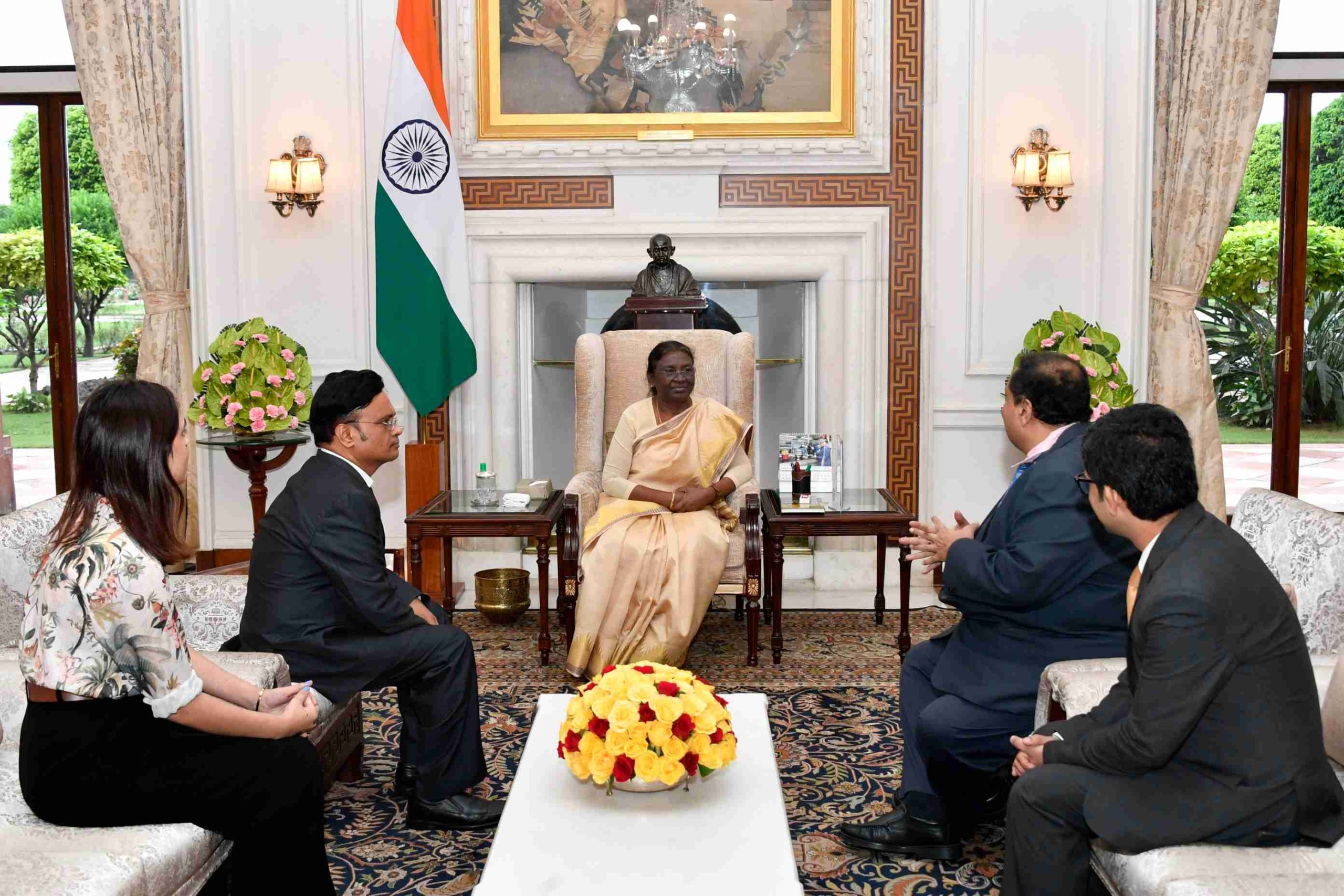
IISD-CMI Team met and discussed with Hon'ble President of India on Sustainability and Climate Action on eve of Institute's 15th Year Celebration of Dedicated Service to Nation and the Planet.
REFUND POLICY
- Substitution of Participants is allowed up to, just before, last 7 Days before the First Day of Training. Later, any Substitution or Replacement, however, would not be allowed, in any case.
- IISD-CMI reserves the full right to Cancel /Postpone the Programme at any Point,beforetheCommencement of the Programme. In case of any Cancellation or Postponement of the Certificate Course Program, Notifications and Refunds will be issued.
- Cancellations received from Individual participants, before the last 20 Days of Commencement of the Training will be entitled to a 50% refund, after reductions related to Bank Transactions, GST or any other Tax deductions. Since it’s a Manual Process, it may take some time.








 Total views : 65060
Total views : 65060